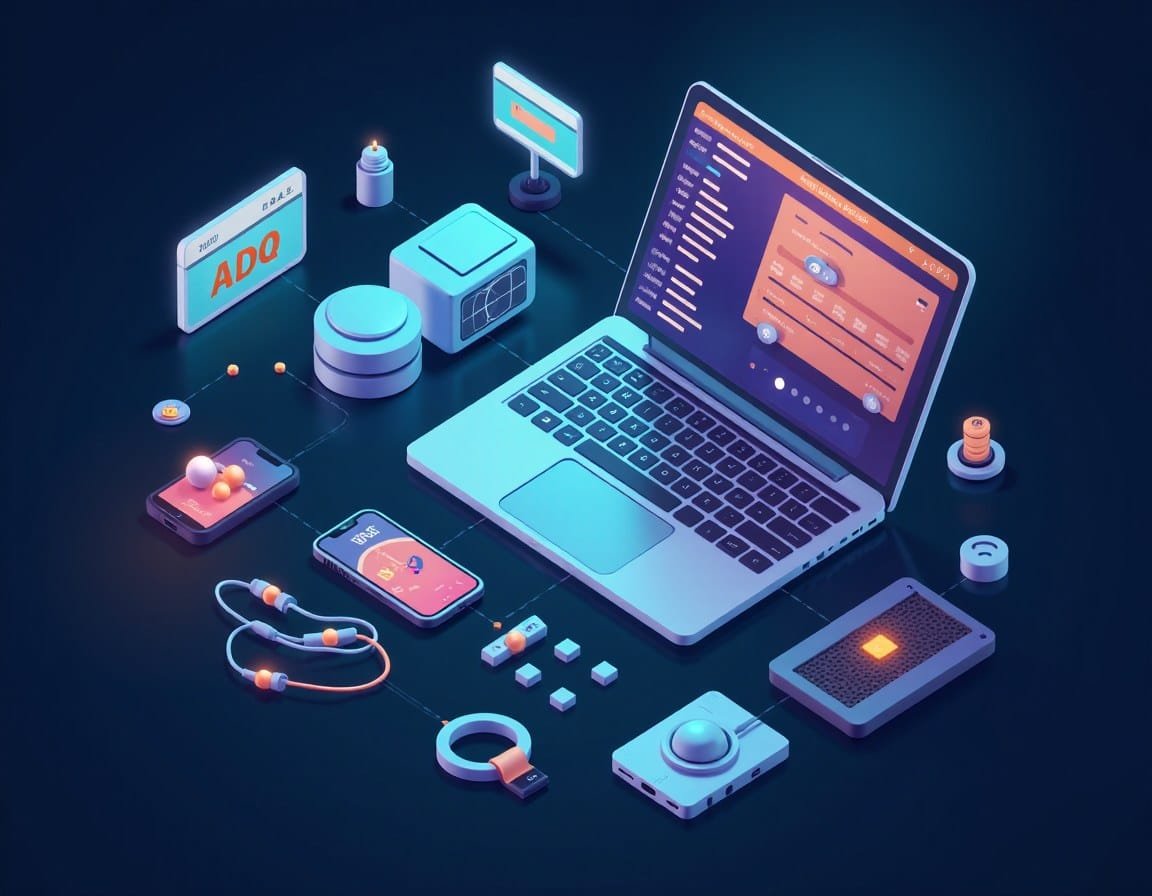The Future of Mindful Technology: Top 10 Innovations Revolutionizing Mental Health and Digital Wellbeing in 2025

Are You Trading Your Sanity for a Smartphone? Discover the Surprising Truth About Digital Mental Wellness Tools and How They Can Help (or Hurt) Your Emotional Wellbeing. In today’s digital age, it’s no secret that our reliance on technology has reached an all-time high – but what does this mean for our mental health? As we increasingly turn to digital solutions for support, the question remains: are these Digital Mental Wellness Tools truly boosting our mindful living, or are they exacerbating the very issues they aim to solve? In this article, we’ll delve into the world of Digital Mental Wellness Tools, exploring their benefits and drawbacks, and providing you with valuable insights on how to harness their power for a healthier, happier you. By understanding the intersection of technology and mental wellbeing, we can unlock a brighter future where tech solutions empower us to thrive – not just survive – in an increasingly digital world.
What are Digital Mental Wellness Tools?
Digital Mental Wellness Tools are applications, platforms, and devices designed to support mental health and emotional wellbeing through technology. These tools range from mental health apps and digital self-care tools to online mindfulness platforms and AI-driven therapy bots.
The Evolution of Digital Mental Wellness Tools
The journey of Digital Mental Wellness Tools began with simple meditation apps and has now evolved into sophisticated platforms that offer personalized mental health support. The integration of AI, machine learning, and big data has revolutionized how these tools operate, making them more effective and accessible.

Top 10 Innovations Revolutionizing Mental Health and Digital Wellbeing in 2025
- AI-Powered Therapy Bots: These bots use natural language processing to provide real-time mental health support, offering a cost-effective alternative to traditional therapy.
- Wearable Stress Monitors: Devices that track physiological indicators of stress and provide real-time feedback to help users manage their stress levels.
- Virtual Reality (VR) Therapy: VR environments designed to treat conditions like PTSD, anxiety, and phobias by immersing users in controlled, therapeutic scenarios.
- Mindfulness and Meditation Apps: Advanced apps that offer personalized meditation sessions based on user data and preferences.
- Digital Journaling Platforms: Tools that encourage users to document their thoughts and feelings, providing insights and trends over time.
- Teletherapy Services: Platforms that connect users with licensed therapists via video calls, making mental health support more accessible.
- Biofeedback Devices: Gadgets that measure physiological responses and provide feedback to help users control bodily functions like heart rate and muscle tension.
- AI-Driven Mood Trackers: Apps that analyze user data to track mood patterns and provide personalized recommendations for improving mental health.
- Social Support Networks: Online communities that offer peer support and resources for individuals struggling with mental health issues.
- Smart Home Integration: Devices that integrate with smart home systems to create environments conducive to mental wellbeing, such as lighting and sound adjustments.
Benefits of Digital Mental Wellness Tools
- Accessibility: These tools make mental health support accessible to people who may not have access to traditional therapy.
- Cost-Effectiveness: Many digital tools are more affordable than traditional therapy sessions.
- Personalization: Advanced algorithms allow for highly personalized mental health support.
- Convenience: Users can access support anytime, anywhere, making it easier to integrate into daily life.
- Data-Driven Insights: These tools provide valuable data that can help users understand and manage their mental health better.
Drawbacks of Digital Mental Wellness Tools
- Privacy Concerns: The collection and storage of sensitive data can pose privacy risks.
- Over-Reliance: Users may become overly reliant on these tools, neglecting traditional forms of support.
- Effectiveness: Not all digital tools are backed by scientific evidence, and their effectiveness can vary.
- Accessibility Issues: While these tools are accessible to many, they may not be suitable for everyone, particularly those with severe mental health issues.
- Technical Issues: Technical glitches and the need for regular updates can hinder the user experience.
How to Choose the Right Digital Mental Wellness Tool
Choosing the right Digital Mental Wellness Tool can be overwhelming given the plethora of options available. Here are some tips to help you make an informed decision:
- Identify Your Needs: Determine what you need help with, whether it’s stress management, anxiety, or general mental wellbeing.
- Research: Look for tools that are backed by scientific research and have positive user reviews.
- Trial Periods: Opt for tools that offer a free trial period so you can test their effectiveness before committing.
- Privacy Policies: Ensure the tool has robust privacy policies to protect your sensitive data.
- Consult Professionals: If in doubt, consult a mental health professional for recommendations.
Case Studies: Success Stories of Digital Mental Wellness Tools
Several case studies highlight the effectiveness of Digital Mental Wellness Tools in improving mental health:
- Case Study 1: A study conducted by the University of California found that users of a popular meditation app experienced a 30% reduction in stress levels after eight weeks of use.
- Case Study 2: Research by the American Psychological Association showed that teletherapy services significantly improved mental health outcomes for individuals in remote areas.
- Case Study 3: A clinical trial by Harvard Medical School demonstrated that VR therapy effectively reduced symptoms of PTSD in veterans.
Future Trends in Digital Mental Wellness Tools
The future of Digital Mental Wellness Tools looks promising, with several trends set to revolutionize the field:
- AI and Machine Learning: These technologies will continue to enhance the personalization and effectiveness of mental health tools.
- Integration with Wearables: Wearable devices will provide real-time data to mental health apps, offering more comprehensive support.
- Blockchain for Privacy: Blockchain technology will be used to enhance data privacy and security.
- Augmented Reality (AR): AR will be used to create immersive therapeutic experiences.
- Collaborative Platforms: Future tools will focus on collaboration between users, therapists, and AI to provide holistic mental health support.
Conclusion
As we move towards 2025, the landscape of Digital Mental Wellness Tools is set to transform dramatically. These innovations hold the potential to revolutionize how we approach mental health and digital wellbeing, making support more accessible, personalized, and effective. However, it’s crucial to navigate this digital landscape mindfully, balancing the benefits with potential drawbacks. By staying informed and making thoughtful choices, we can harness the power of technology to enhance our emotional wellbeing and lead healthier, happier lives.
Additional Resources
“`






